Hawaiian fruits are natural treasures thanks to the islands’ rich volcanic soil and tropical climate. These fruits are abundant in varieties, ranging from sweet and tangy to refreshingly exotic.
In Hawaii, you’ll discover fruits like refreshing coconut, aromatic guava, richly flavored passion fruit, the world-renowned Hawaiian pineapple, and more.
These fruits are also versatile in Hawaiian cuisine, from traditional dishes to modern desserts and cocktails.
Here, I’ll explore the most well-loved fruits in Hawaii with their characteristics, culinary uses, or for other purposes. Additionally, I’ll highlight some iconic Hawaiian dishes and drinks that showcase these tropical treasures.
Later, you can glance at the season of some popular fruits and widely used vegetables on this island. So keep reading to learn more!
27 Popular Hawaiian Fruits with Filters
It’s time to discover the most well-known 27 Hawaiian fruits that you need to know. Make use of the interactive filter to check if these fruits are used in dishes, beverages, or garnish.
Also, find out the fruity options that are seen as exotic, native, non-native, or utilized as fruit vegetables.
Pineapple
- For Beverages
- For Dishes
- Non-Native
The tropical climate of Hawaii is suitable for the growth of pineapple. On this island, the pineapple was first cultivated in the 1900s.
Hawaii had the most significant amount of exported pineapples globally, with about 80 percent of the canned pineapple worldwide in the 1960s.
Like other regions, Hawaiian pineapple has an enchanting sweetness and a mild tartness. People often use it to make smoothies, juice, and desserts, or consume it alone.
Hawaiians often call pineapple “Hala kahiki” because of its similarity with Hala fruit.
Mango
- For Beverages
- For Dishes
- For Garnish
- Non-Native
Mango has been grown in Hawaii since 1824, though its origin is from Myanmar, India, and Bangladesh.
Mango is known for its juicy, stone-like seed in the center. There are around 100 mango varieties, with 60 types found in Hawaii. These mangos vary in color, including green, orange, gold, and yellow flesh.
Their shapes are often oval, round, or kidney-like, with smooth, leather-like skin. Ripe mangoes are sweet, while unripe ones are crisp and slightly sour. In Hawaii, the mango season peaks from June to July.
Coconut
- For Beverages
- For Dishes
- Non-Native
Coconut is a refreshing fruit in Hawaii, thanks to the sweet and rehydrated water inside the fruit. Actually, coconuts are not native to this land, but they are prominent fruits here. They were brought to the island by Polynesian voyagers decades ago.
Coconut has distinctive hard and green skin. Moreover, a thick and tough fiber layer protects the creamy flesh layer.
This is a versatile fruit because it can do great in many tasty dishes, desserts, or health and beauty products.
Liliko
- For Beverages
- For Dishes
- Non-Native
Liliko (or passion fruit) is a well-known fruit in Hawaii. It’s a tropical vine fruit with round and oval shapes and red, purple, green, or yellow skin.
The exterior ranges from purple to yellow, enclosing a jelly-like interior filled with seeds
Lilikoi’s taste is a vibrant blend of sweet and tart, making it a favorite in juices, salads, desserts, and even savory dishes. It can be consumed fresh as well.
If you would like to add vitamins A, C, iron, and other nutrients, liliko is an ideal choice.
Lychee
- Exotic
- For Beverages
- For Dishes
Lychee is an iconic member of the Sapindaceae family. Originating in China, lychee’s popularity is also huge in Hawaii.
Lychee has vibrant pink-red skin that’s rough to the touch. Inside, its sweet flesh encircles a black seed. With its fragrant sweetness, lychee is good to enjoy fresh or add to desserts like ice cream, cakes, or cocktails.
Papaya
- For Beverages
- For Dishes
- Non-Native
Brought to Hawaii over a century ago, papaya is now a staple on the island, and various types thrive in the local climate.
This pear-shaped berry offers soft, sweet flesh in shades of red or yellow, while the green-skinned, unripe versions are deliciously crunchy.
To eat papaya, you should remove its skin and numerous black seeds. With a taste reminiscent of mangoes and cantaloupes, papaya is a year-round delight in Hawaii, packed with folate, vitamin A, and potassium.
Avocado
- For Dishes
- Non-Native
Avocado is a healthy and versatile fruit you must try in Hawaii. This land is a paradise of avocados, with about 200 varieties.
Its skin color is diverse, with green, brown, black, or purplish, depending on the type. Overall, avocado’s smooth buttery texture is ideal for making fresh salads, sandwiches, and smoothies. Regarding the health benefits, avocados are high in healthy fats, vitamins, and minerals.
Breadfruit
- For Dishes
- Non-Native
In Hawaii, breadfruit, or ulu, is a beloved fruit introduced by Polynesians in 300 AD.
Breadfruit’s flavor is often compared to other starchy foods. When fully ripe, it tastes sweet, with hints of freshly baked bread or potatoes, and sometimes a mild sweetness. The texture is soft and creamy.
In its unripe form, breadfruit is more savory and often used in dishes as a potato substitute. It can absorb the flavors of the ingredients it’s cooked with.
Soursop
- Exotic
- For Beverages
- For Dishes
Soursop is a native fruit of the Americas and the Caribbean. This yummy fruit belongs to the Annonaceae family and grows well in tropical climates, especially in Hawaii.
This fruit features dark green and prickly skin. It has a sour-sweet flavor and intense, pineapple-like aroma. In fact, its taste resembles the blend of apple, strawberries, and sour citrus fruits.
Soursop has a creamy texture, making it an excellent option to add to ice cream, smoothies, or other desserts.
Strawberry Guava
- For Beverages
- For Dishes
- Non-Native
Many guava cultivars exist, but strawberry guava is Hawaii’s most common and unique species.
In Hawaii, natives often call it “waiawi”. It has many similarities to regular guava, but it looks extraordinary in its red skin.
Flavorwise, it tastes tangy and mildly sweet, and you can think of the fresh strawberries while eating it.
This fruit has become a favorite for fresh eating and culinary recipes like jams and desserts.
Rambutan
- Exotic
- For Beverages
- For Dishes
Rambutan thrives well in Hawaii’s tropical climate. It stands out with its hairy exterior. sweet, juicy interior.
Take a bite, you can feel the fruit’s translucent flesh with a sweet and slightly acidic taste. So they’re typically enjoyed fresh, with the peel and seed discarded.
Longan
- Exotic
- For Beverages
- For Dishes
Another tropical fruit famous in Hawaii is longan. It belongs to the same family as the rambutan and lychee. Therefore, you can find many similarities between them.
Longan has three main parts: thin skin, sweet flesh with a gelatinous texture, and a round seed inside.
People normally consume them fresh or add the fruits to desserts and snack recipes.
Cherimoya
- Exotic
- For Dishes
Cherimoya in Hawaii is praised for its creamy texture and blend of banana, pineapple, and papaya flavors.
Its name comes from the word “chirimuya” meaning “cold seeds.” This fruit is also known as “chirimoya” in South American countries. Regarding its appearance, cherimoya has a typical heart shape with overlapping scales on the skin’s surface.
After removing the peel, you can eat this fruit’s creamy flesh. Besides eating fresh, you can add it to desserts for a tropical treat.
Jackfruit
- Exotic
- For Dishes
In Hawaii, jackfruit presence shows the islands’ embrace of diverse fruit crops. Jackfruit’s appearance is distinctive, with a thick crust and many tiny spikes.
Inside, it has numerous small and yellow segments. Each segment will contain a big pit. And they will attach to a whitish core.
Its flavor is often described as a mix of apple, pineapple, mango, and banana. This massive fruit can be used unripe in savory dishes or ripe in sweet preparations. Jackfruit seeds are edible, too, as long as they are steamed, roasted, or boiled.
Starfruit
- For Beverages
- For Garnish
- Non-Native
Tropical areas like Hawaii are suitable for the cultivation and development of starfruit.
It is easy to identify starfruit because of its distinct star shape when cut crosswise.
The fruit’s juicy, crisp texture and sweet to slightly tart flavor make it a refreshing treat. They can be ingredients in salads or as a garnish in drinks.
Plus, starfruit contains a lot of antioxidants and vitamin C.
Noni
- Exotic
- For Beverages
Originating in Southeast Asia and Australia, noni is also common in Hawaii. However, noni has a pungent smell and taste that not everyone likes.
This small, bumpy fruit turns from green to a translucent yellow as it ripens. Noni is highly valued for its health benefits, including its high vitamin C content.
It’s often consumed as juice or used in skincare products, like lotions, soaps, or beverages.
Dragon Fruit
- Exotic
- For Beverages
- For Dishes
Dragon fruit, or pitaya, is a popular tropical fruit in Hawaii.
It has had the English name “dragon fruit” since 1963. The leathery-like skin with many scaly spikes is the source of its name.
Common dragon fruit types typically have red or white flesh and pink or yellow skin. Its flavor is mildly sweet, reminiscent of a kiwi and pear blend.
The fruit has multiple tiny black seeds, but they are edible. Therefore, you can consume dragon fruit raw, or add it to salads, smoothies, or other desserts.
Egg Fruit
- Exotic
- For Dishes
In Hawaii, egg fruit holds a strong place in the hearts of natives and tourists. This fantastic fruit was first found in Mexico and gradually became popular in Central and South America, the Caribbean, and Asia.
It has the shape and texture of a hard-boiled egg yolk, hence its name. It tastes similar to sweet potatoes with a dry sweet flesh.
Typical egg fruit contains about 2 to 4 brown seeds, and they are inedible. For culinary purposes, egg fruit is good for making jams, pancakes, ice cream, or marmalade. Or just eat them fresh if you like.
Mountain Apple
- For Beverages
- For Dishes
- Native
The mountain apple, or ‘Ōhi‘a ‘Ai, is a cherished part of Hawaiians. Polynesian settlers brought this fruit to Hawaii from Malaysia.
Its shape is quite similar to a pear or heart, covered with shiny, waxy skin. The color of this fruit is pretty eye-catching, with light pink and ruby red.
This juicy fruit has a crisp texture and a subtly sweet flavor, making it a refreshing snack on warm days. Mountain apples are common in Hawaii from late summer to autumn.
Poha Berry
- For Beverages
- For Dishes
- Non-Native
Poha berry, known in other regions as cape gooseberry or goldenberry, is a treasured fruit in Hawaii.
It has a perfect round shape with smooth yellow skin. The fruits are covered by a papery husk. With its tangy-sweet flavor, poha berries are often turned into jams, jellies, or desserts. Nutritionwise, it is full of vitamins C and K.
Cacao
- For Dishes
- Non-Native
In Hawaii, growing cacao trees introduces the state to chocolate making. The beans from these trees are dried and fermented to create chocolate.
Each cacao pod has a thick skin that hides a sweet pulp inside. The pulp tastes similar to mango or lychee when eaten fresh.
Surinam Cherry
- Exotic
- For Beverages
- For Dishes
Surinam cherries or pumpkin cherries are an exotic fruit in Hawaii. One of the most unique things about this fruit is its appearance, which is similar to a small pumpkin. It’s also visual with the red to deep burgundy when ripe.
These fruits have a tangy and slightly sweet flavor that stands out in jams and jellies. Also, you can take advantage of its leaves to make tea.
Persimmon
- For Dishes
- Non-Native
Hawaiian persimmon is famous for its smooth texture and sweet flavor. These bright orange fruits are soft and pudding-like when ripe.
People often eat them fresh or use the fruit in baking. What’s better, persimmon is high in vitamin A.
FYI, its name is taken from the “pasiminan” or “putchamin” words, which means “dry fruit” in Powhatan (Algonquian language).
Sapote
- Exotic
- For Dishes
If you have a chance to visit Hawaii, you have to give sapote a try. This fantastic fruit originates in Central America, South America, and Mexico.
Sapote has a creamy, custard-like flesh with a sweet, mild flavor reminiscent of chocolate or pumpkin.
This exotic fruit varies in color from green to brown. It’s normally enjoyed raw, blended into smoothies, or used in desserts.
Mangosteen
- Exotic
- For Beverages
- For Dishes
Mangosteen, though not native, has found a favorable fruit in Hawaii. It is easy to recognize with a thick, purple rind, and the white segmented flesh inside.
The succulent fruit contains about 6 to 10 white segments. The fruit tastes sweet and tangy with a juicy and soft interior.
This “queen of fruits” is often eaten fresh, cherished for its antioxidant properties
Jaboticaba
- Exotic
- For Beverages
- For Dishes
Jaboticaba is another non-native fruit that has become common in Hawaiian gardens. In fact, it comes from Brazil.
Jaboticaba has dark purple skin that covers sweet, grape-like flesh. Locals usually use it to make jellies and wines or enjoy fresh.
Apple Banana
- For Dishes
- Native
Apple banana is the most common banana variety in Hawaii. This tasty fruit has a sweet and tangy flavor, which is more complex than the typical banana.
These small, chubby fruits are perfect for snacking or baking. Thriving in Hawaii’s climate, apple bananas are a staple in local markets and kitchens.
What Are Hawaiian Dishes with Fruits?
Fruits are also used in many dishes in Hawaii. Check out the below dishes for more details.
Besides these Hawaiian food delights, you can also find various fruit-based drinks as well.
What Are Hawaiian Beverages with Fruits?
Here are five drink options with fruits in Hawaii.
If you are curious about the seasons of Hawaiian fruits, check out the next section!
When Is Fruit Season in Hawaii?
In Hawaii, the fruit season spans the year due to the islands’ tropical climate, allowing various fruits to grow and ripen in different seasons. Let me introduce some of the most popular fruits in Hawaii during the season.
That’s all about the fruits. Let’s learn about some commonly eaten veggies on this island.
What Are Popular Vegetables in Hawaii?
Hawaii’s diverse climate allows various vegetables to thrive, many of which are staples in Hawaiian cuisine. Here are some popular vegetables you’ll find in Hawaii:
So, have you ever tried any Hawaiian fruits from the above list? For the best taste and quality, keep their peak seasons in mind. If you have some thoughts or questions, just drop a comment below. Thanks for stopping by!


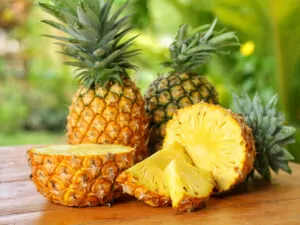
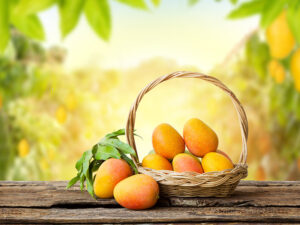
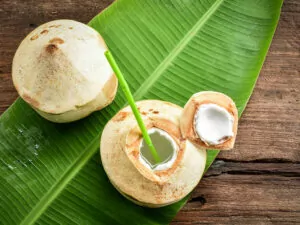
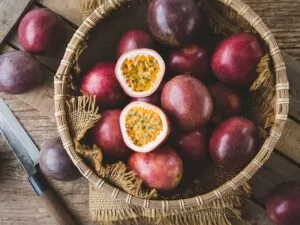
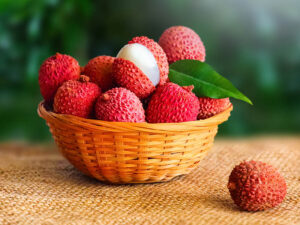
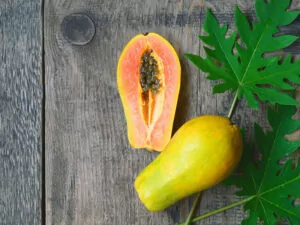
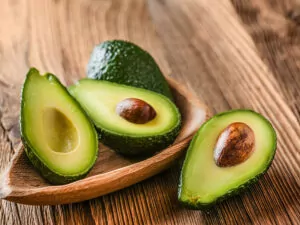
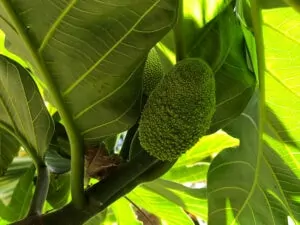
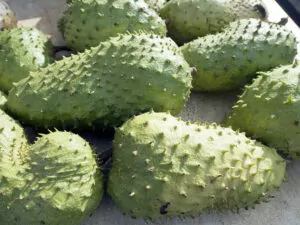
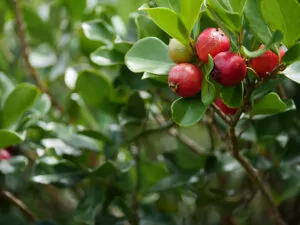
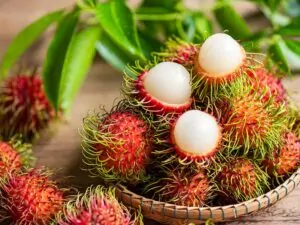
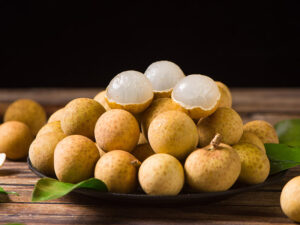
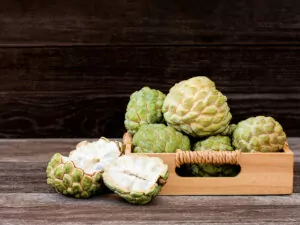
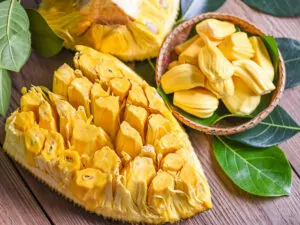
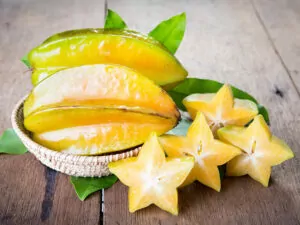
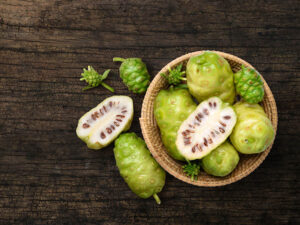
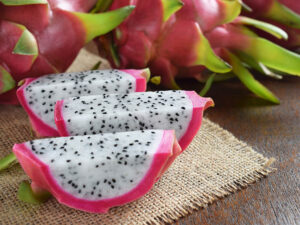
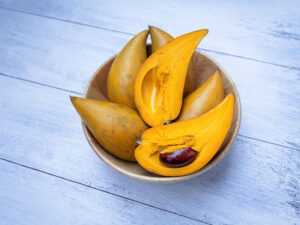
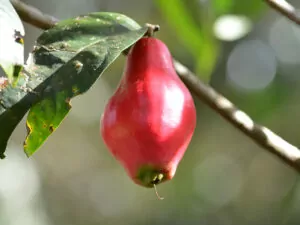
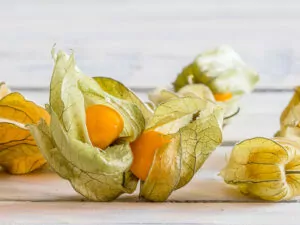
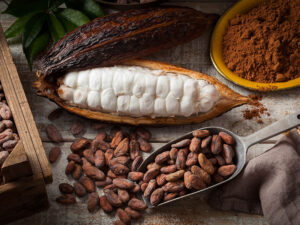
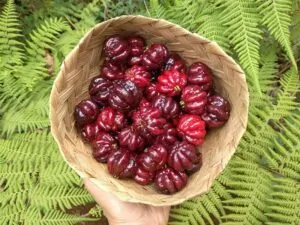
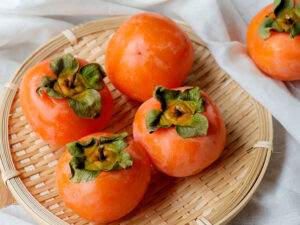
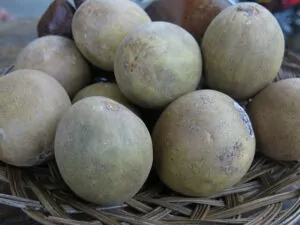
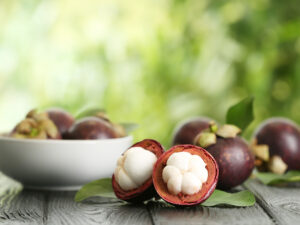
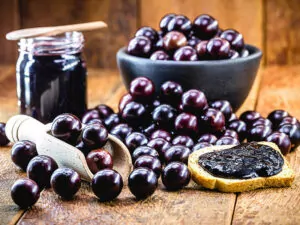
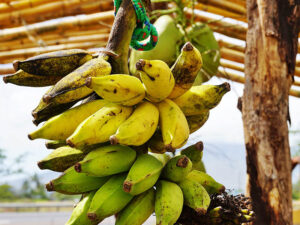

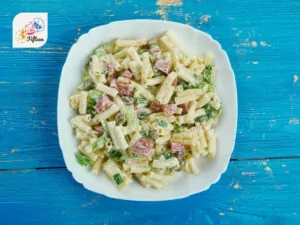
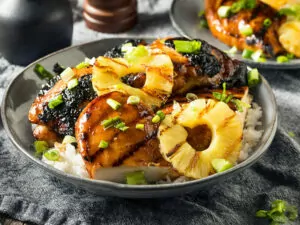
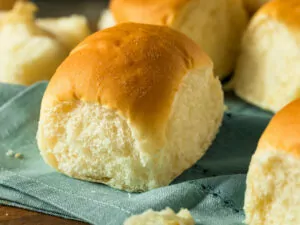
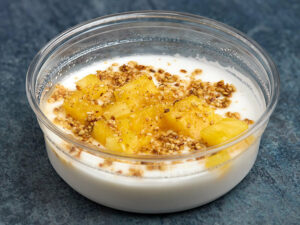
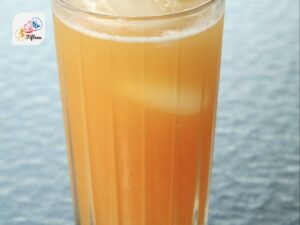
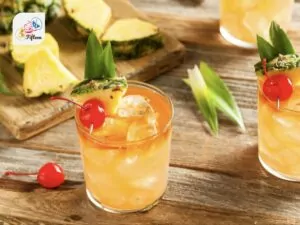
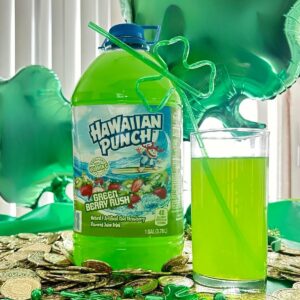
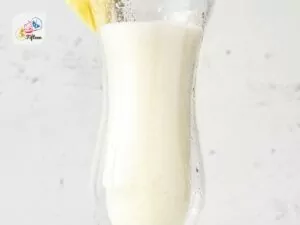
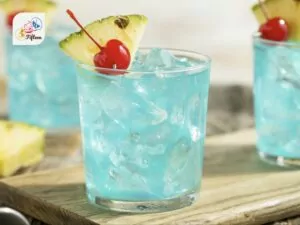
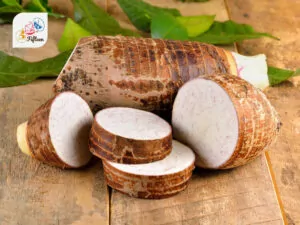
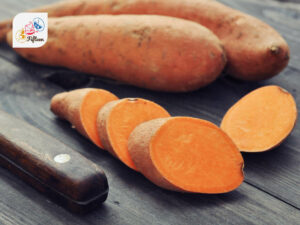
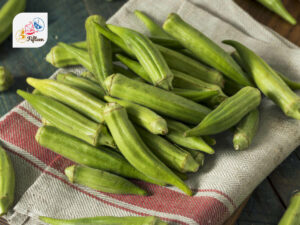
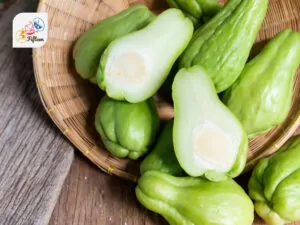
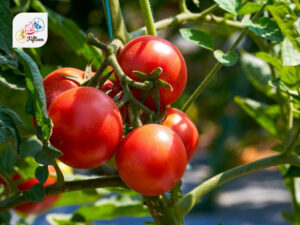
Jamie Scott
Editor in Chief, Senior Content Writer
Expertise
Home Cooking, Meal Planning, Recipe Development, Baking and Pastry, Food Editor, Cooking-video Maker, Western Food Evaluation Expert
Education
Le Cordon Bleu College of Culinary Arts
Local Community College, New York, NY
Jamie Scott is a skilled culinary expert and content creator specializing in Western cuisine. With over 15 years in the culinary field and formal training from Le Cordon Bleu, Paris, Jamie deeply understands how to blend nutrition with delicious flavors. His passion for cooking matches his commitment to making healthy eating accessible and enjoyable.
On Fifteen.net, Jamie brings a fresh perspective to classic dishes and beverages, offering readers insightful recipes, cooking tips, and a fresh view on meal planning that emphasizes taste, health, and simplicity.